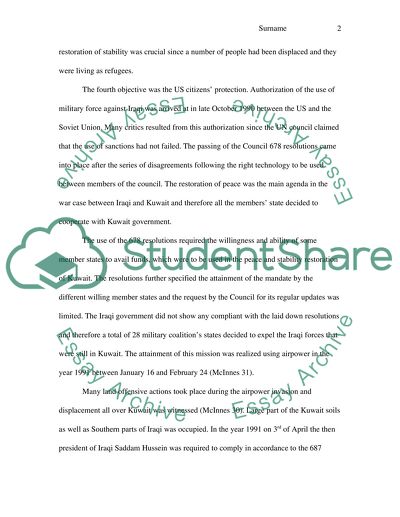Cite this document
(“INTERNATIONAL LAW: IRAQI INVASION OF KUWAIT 1990-1991 Research Paper”, n.d.)
INTERNATIONAL LAW: IRAQI INVASION OF KUWAIT 1990-1991 Research Paper. Retrieved from https://studentshare.org/history/1486799-international-law-iraqi-invasion-of-kuwait
INTERNATIONAL LAW: IRAQI INVASION OF KUWAIT 1990-1991 Research Paper. Retrieved from https://studentshare.org/history/1486799-international-law-iraqi-invasion-of-kuwait
(INTERNATIONAL LAW: IRAQI INVASION OF KUWAIT 1990-1991 Research Paper)
INTERNATIONAL LAW: IRAQI INVASION OF KUWAIT 1990-1991 Research Paper. https://studentshare.org/history/1486799-international-law-iraqi-invasion-of-kuwait.
INTERNATIONAL LAW: IRAQI INVASION OF KUWAIT 1990-1991 Research Paper. https://studentshare.org/history/1486799-international-law-iraqi-invasion-of-kuwait.
“INTERNATIONAL LAW: IRAQI INVASION OF KUWAIT 1990-1991 Research Paper”, n.d. https://studentshare.org/history/1486799-international-law-iraqi-invasion-of-kuwait.


